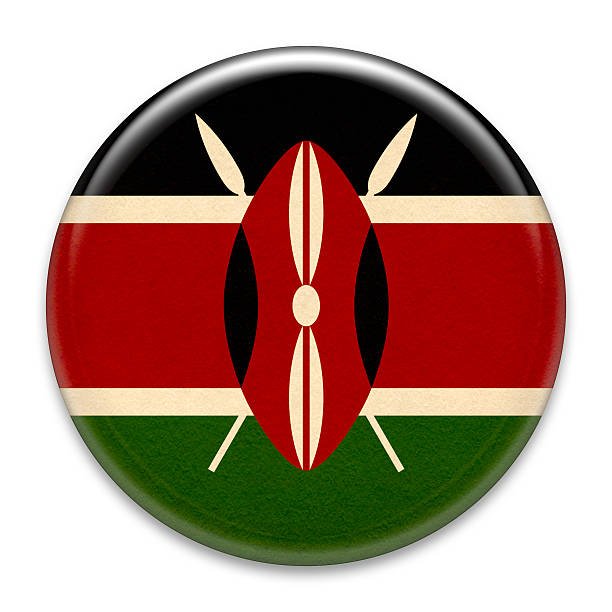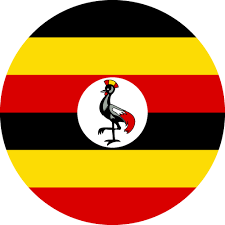EOR Nigeria
eor Nigeria
eor Nigeria
eor Nigeria

Nigeria, situated in West Africa, is the continent’s most populous nation and exhibits remarkable diversity in cultures, languages, and geography. With a rich history influenced by ancient kingdoms and colonial rule,
Nigeria is a nation of dynamic contrasts. Its economy, fueled by abundant natural resources, drives growth, while vibrant cities like Lagos are bustling hubs of commerce and culture.
Nigeria’s music, literature, and art have gained international acclaim, contributing to its global influence. Challenges such as governance and infrastructure persist alongside its immense potential.
Employee Benefits
Holidays
Public Holidays in Nigeria
- New Year’s Day (1st January)
- Good Friday (10th April)
- Easter Monday (13th April)
- Labor Day (1st May)
- Eid al Fitr
- Democracy Day (12th June)
- Eid al Adha
- Nigerian Independence Day (1st October)
- Prophet’s Birthday
- Christmas Day (25th December)
- Boxing Day (26th December)
Annual Leave
In Nigeria, labor law grants workers the right to annual leave, with specific provisions:
- Workers are entitled to a minimum of six working days of annual leave with full salary.
- Young workers, defined as those under the age of sixteen, including apprentices, are entitled to an increased annual leave of at least twelve working days.
- To qualify for annual leave, a worker must have been employed for a minimum of twelve months.
Maternity Leave
In Nigeria, there are specific provisions for maternity leave for female employees in both the public and private sectors:
- Public Sector:
- Female employees in the public sector are entitled to 16 weeks of maternity leave at full pay.
- Private Sector:
- Female employees in the private sector are entitled to 12 weeks of maternity leave.
- This period is typically divided into six weeks before childbirth and six weeks after childbirth.
- During the maternity leave in the private sector, the employee is entitled to 50% of her regular pay.
- However, the remuneration can be increased to full pay through contractual arrangements.
Paternity Leave
In Nigeria, paternity leave is available in some states, including Lagos and Enugu:
- Lagos State:
- Fathers are entitled to two weeks of paid paternity leave.
- Enugu State:
- Fathers are entitled to three weeks of paid paternity leave.
These provisions allow fathers to take time off work to bond with their newborn child and support their partners during the postpartum period. It’s important to note that the availability and duration of paternity leave may vary by state, and it’s advisable to consult local labor regulations for the most accurate and up-to-date information.
Probation Period
In Nigeria, labor law does not stipulate a specific maximum duration for probation periods. However, common industry practice typically sees probationary periods for employees lasting between three (3) and six (6) months. These probation periods serve as a means for employers to assess an employee’s performance and suitability for a permanent position, while allowing the employee to become acclimated to their new role and responsibilities.
Sick Leave
In Nigeria, there is a general provision that employees are entitled to 12 days of paid sick leave per year. This means that employees can take up to 12 days of paid leave when they are unable to work due to illness or medical reasons. However, specific sick leave policies and benefits can vary by employer and may be subject to employment contracts or collective agreements. It’s important for both employers and employees to be aware of and adhere to the relevant sick leave policies in place.
Salary & Wages
In Nigeria, there are no legal requirements for 13th-month wage payments, and it is not mandated at the national level. However, bonuses are often provided at the discretion of employers. Some states in Nigeria may have specific requirements or regulations related to bonuses, and in some cases, governors may make it mandatory.
Despite the absence of a national requirement, the payment of a 13th-month salary is observed in many cases, driven by collective bargaining agreements and company culture. This means that some employers choose to provide an additional month’s salary as a bonus to employees, typically at the end of the year, as a form of extra compensation.
Immigration
Obtaining a work visa in Nigeria, including the Subject to Regularization (STR) visa and the necessary CERPAC card, requires specific documentation and procedures. Here are the key requirements for obtaining these visas:
For an STR Visa:
- A formal application from the sponsoring employer in Nigeria.
- A valid passport with at least two blank pages and a minimum of six months of validity.
- Proof of sufficient financial means.
- Two recent passport-size photos.
- A completed visa application form.
- A job offer letter from a Nigerian company and an acceptance letter from the employee.
- A copy of the employee’s CV and relevant educational qualifications.
- Expatriate quota approval.
For a CERPAC (Alien Card):
- An application letter from the Nigerian employer, accepting Immigration Responsibility and requesting regularization of the employee’s stay.
- A letter of employment and acceptance of the job offer.
- A duly completed application form.
- Proof of expatriate quota approval.
- Three passport photos, the applicant’s passport, which should have STR visa endorsement.
- A business permit.
- Proof of payment for any applicable fees.
These requirements are essential for foreign nationals seeking to work legally in Nigeria. The STR visa allows entry into Nigeria for work purposes, while the CERPAC card grants the right to live and work in the country. Employers and employees should ensure that they fulfill these requirements to comply with Nigerian immigration regulations.
Severance
In Nigeria, the labor law does not have specific provisions for severance pay. This means that employers are not legally required to make severance payments to employees upon termination. However, severance pay can be negotiated and specified in individual employment contracts or collective agreements.
The absence of a statutory requirement for severance pay means that the terms and conditions related to severance pay should be clearly outlined in employment contracts or collective bargaining agreements to ensure that both employers and employees understand their rights and obligations in this regard
Statutory Benefits
In Nigeria, employment legislation outlines several mandatory benefits and provisions that employers are required to provide to their employees. These benefits and provisions include:
- Notice Period: The legislation stipulates the notice period that must be given by either the employer or the employee when terminating the employment relationship.
- Probationary Period: The law may specify rules and requirements regarding probationary periods for new employees.
- Yearly Leave: Employees are entitled to annual leave, and the legislation may define the duration and conditions of this leave.
- Public Holidays: Regulations regarding paid public holidays are typically covered by labor laws.
- Sick Leave: The law may require employers to provide paid sick leave to employees.
- Maternity Leave: Maternity leave for female employees, including the duration and compensation, is mandated by law.
- Paternity Leave: In some regions, paternity leave may also be legally required.
- Overtime Pay: Labor laws often stipulate the rules and rates for overtime pay when employees work beyond regular working hours.
Additionally, the legislation may require employers to provide social security benefits, which can include:
- Pension Funds: Mandatory contributions to pension funds to secure retirement benefits for employees.
- Employee Remuneration: Regulations related to remuneration and compensation packages.
- Life Insurance: Providing life insurance coverage for employees.
- Required Health Insurance: Ensuring that employees have access to health insurance benefits.
These mandatory benefits and provisions are designed to protect the rights and well-being of employees and ensure fair and equitable working conditions. Employers must adhere to these legal requirements to maintain compliance with labor laws in Nigeria. Specific details and variations may exist based on the jurisdiction and type of employment.
Overtime
Employers must compensate these employees with the minimum wage and provide overtime pay when they exceed 40 hours of work in a week. According to the Fair Labor Standards Act, employees are entitled to receive one and a half times their regular hourly wage for overtime work.
Income Tax
Income Tax Rates
Taxable Income (NGN) | Tax Rate % | Tax NGN | Cumulative tax NGN |
First 300,000 | 7 | 21,000 | 21,000 |
Next 300,000 | 11 | 33,000 | 54,000 |
Next 500,000 | 15 | 75,000 | 129,000 |
Next 500,000 | 19 | 95,000 | 224,000 |
Next 1,600,000 | 21 | 336,000 | 560,000 |
Above 3,200,000 | 24 | _ | _ |
Social Security
In Nigeria, various mandatory contributions and schemes are in place to support employee welfare and development:
- Pension: Employers and employees must contribute a total of 18% of an employee’s monthly emoluments to the Nigerian Pension Scheme. Employers contribute 10%, while employees contribute 8%. Monthly emoluments comprise the basic salary, housing allowance, and transport allowance.
- National Housing Fund: Employees earning a basic salary of NGN3,000 or more annually must contribute 2.5% of their basic salary to the National Housing Fund.
- Employee Compensation Scheme (ECS): The ECS ensures compensation for employees or their dependents in the event of work-related injuries, illnesses, or disabilities. Employers are mandated to remit 1% of their total monthly payroll to the National Social Insurance Trust Fund as ECS contributions, ensuring employees’ registration for scheme benefits.
- Industrial Training Fund (ITF): Employers with five or more employees must contribute 1% of their total payroll costs to the ITF. Even employers with fewer than five employees but with a turnover of NGN50 million or more are required to make this contribution. The definition of “employee” includes temporary workers with a minimum three-month tenure. The ITF may offer up to a 50% refund on contributions if the employer engages in approved employee training programs.
Value Added Tax
In Nigeria, the standard Value Added Tax (VAT) rate is set at 7.5%, which was increased from the previous rate of 5% on February 1, 2020. The tax system also includes specific provisions for zero-rated and exempt supplies:
- Zero-Rated Supplies: Zero-rated supplies are those on which VAT is charged at a rate of 0%. This means that any VAT incurred on these supplies can be refunded or re-credited to the taxpayer. Zero-rated items in Nigeria include non-oil exports, goods and services purchased by diplomats, and goods and services acquired for use in humanitarian donor-funded projects.
- Exempt Supplies: Exempt supplies are those that are not subject to VAT. These include:
- Plants and machinery for use in export processing zones or free trade zones.
- Basic food items.
- Medical products and services.
- Pharmaceutical products.
- Books and educational materials.
- Exported services.
These VAT provisions are designed to ensure that essential goods and services are not subject to the standard VAT rate, thus promoting accessibility and affordability for necessary items and encouraging exports.
Termination
In Nigeria, employment agreements can be terminated by either party with or without cause, subject to specific conditions outlined in the agreement and labor laws. Here are some key points regarding employment termination:
- Termination by Notice: Either the employer or the employee may terminate the employment agreement by giving written notice within the stipulated time frame. The notice period may vary based on the duration of service.
- Termination Upon Expiry: An employment contract naturally terminates when the specified time period for which it was signed expires. It can also be terminated if the employee passes away before the contract’s expiration date.
- Termination Due to Legal Requirements: Employment can be terminated by providing notice for the time period required by labor laws in Nigeria.
- Notice Period Based on Duration of Service: The length of service impacts the amount of notice required to terminate employment. For employees who have worked with the company for three months or more, the employer is not obligated to pay for absences due to authorized leaves of absence requested by the employee.
- Payment at the End of the Notice Period: Both the employer and the employee are required to ensure that all payments due to the departing employee are settled on or before the notice period expires.
- Money in Place of Notice: In some cases, neither party may be required to give notice, and instead, money in place of notice can be provided as per the terms of the employment agreement. The calculation for this typically considers the employee’s basic pay, while overtime and other allowances may not be included.
Termination of employment in Nigeria is subject to the specific terms and conditions set out in the employment contract and must also adhere to applicable labor laws. It’s important for both employers and employees to be aware of their rights and obligations when it comes to ending the employment relationship.
Notice Period
The requirement for a notice period when ending an employment contract depends on the employee’s duration of service. The notice periods are as follows:
- One day for a service duration of three months or less.
- One week for employees with over three months but less than two years of service.
- Two weeks for those with two to five years of service.
- One month for employees who have served for five or more years.
































